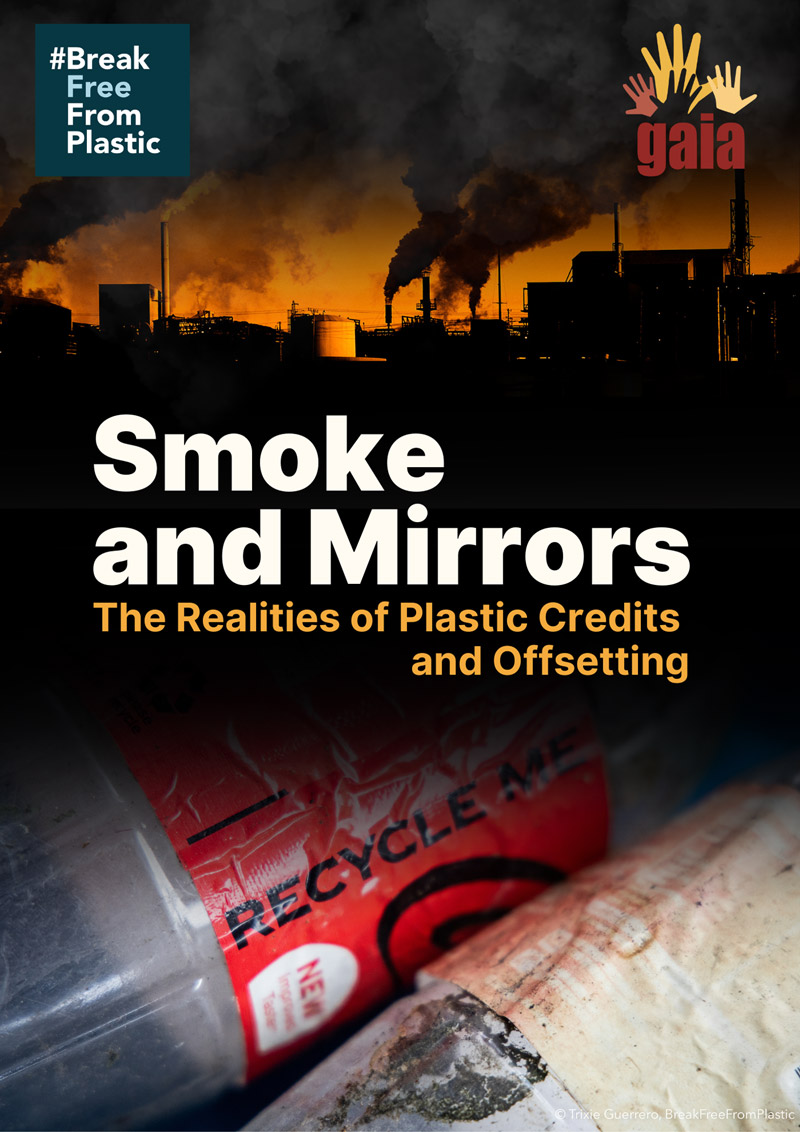Read updates on the fifth round of negotiations for Plastics Treaty ➝
Protect our planet! Last chance to join the call for a strong Plastics Treaty. SIGN THE PETITION NOW.
Building on research published by SourceMaterial and Bloomberg with original research by Break Free From Plastic (BFFP) and the Global Alliance for Incinerator Alternatives (GAIA), this report uncovers serious flaws in plastic offsets, credits and plastic neutrality. The listed projects on two of the main proponents of plastic offsetting — Verra and Plastic Credit Exchange (PCX) — were analysed to provide a snapshot of the current realities of plastic offsetting, beyond the promises and marketing.
As the world’s governments come together to negotiate a new international treaty to tackle plastic pollution across its lifecycle, it is vital that the reality of plastic offsetting is understood. A concept shrouded in smoke and mirrors should not be incentivised in a treaty designed to reduce plastic pollution.

Media Contact:
Claire Arkin, Global Communications Lead, GAIA
claire@no-burn.org | +1 973 444 4869 (whatsapp)